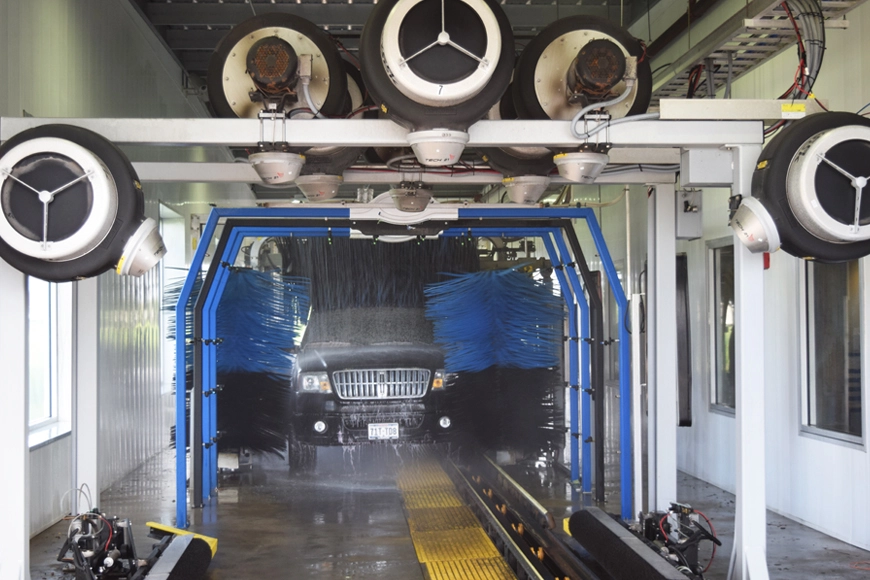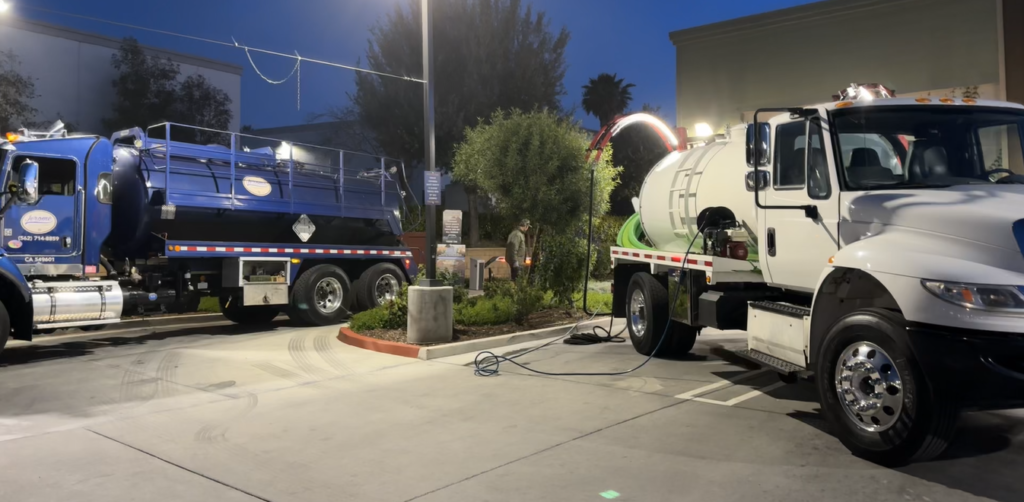Proper waste management is crucial for businesses and individuals, yet many fail to utilize professional vacuum truck services. Attempting to handle waste removal independently with inadequate equipment or methods can lead to inefficient waste removal, environmental hazards, and potential legal issues. Professional vacuum truck services possess the necessary tools and expertise to manage waste removal safely and efficiently.
Neglecting professional services can result in improper waste disposal, potentially violating environmental regulations and incurring fines and penalties. DIY waste removal can be time-consuming and labor-intensive, diverting resources from other important tasks. In the long term, avoiding professional vacuum truck services may lead to higher costs in terms of time, money, and legal consequences.
It is essential for individuals and businesses to recognize the value of professional vacuum truck services. These services offer efficient waste removal, proper disposal methods, and compliance with environmental regulations. By utilizing professional services, organizations can ensure safe, effective waste management while avoiding potential risks and liabilities associated with improper handling.
Key Takeaways
- Not using professional vacuum truck services can lead to incomplete waste removal and potential environmental hazards.
- Ignoring safety precautions when dealing with waste can result in accidents and health risks for workers and the public.
- Neglecting regular maintenance of vacuum trucks can lead to equipment failure and inefficient waste removal.
- Using harsh chemicals in vacuum trucks can cause damage to the environment and pose health risks to workers and the public.
- Failing to properly dispose of waste can result in legal consequences and environmental pollution.
- Overlooking environmental regulations can lead to fines and damage to the surrounding ecosystem.
- Underestimating the importance of cleanliness in waste removal can lead to unsanitary conditions and health hazards.
Ignoring Safety Precautions
Waste management is a critical process that requires careful attention to safety protocols to prevent accidents, injuries, and exposure to hazardous materials. Unfortunately, many individuals and businesses neglect to prioritize safety, leading to serious consequences.
Safety Risks in Waste Removal
Failing to implement proper safety measures puts individuals and workers at risk of accidents, injuries, and exposure to harmful substances. This can result in physical harm, legal liabilities for businesses, and long-term health issues for those involved in waste removal.
Long-term Health Implications
Exposure to harmful chemicals and materials can have severe health implications, including respiratory problems, skin conditions, and even long-term illnesses. By neglecting safety precautions, individuals and businesses are not only putting themselves at risk for immediate harm but also jeopardizing their long-term well-being.
The Importance of Prioritizing Safety
It is crucial for all parties involved in waste management to prioritize safety and adhere to proper safety protocols to mitigate the risks associated with waste removal. By doing so, individuals and businesses can ensure a safe and healthy environment for everyone involved.
Neglecting Regular Maintenance

Neglecting regular maintenance of waste management equipment and facilities is another common mistake that can have serious consequences. Without proper maintenance, equipment such as vacuum trucks can become inefficient or even unsafe to operate. This can lead to delays in waste removal, increased operational costs, and potential breakdowns that disrupt waste management processes.
Neglecting regular maintenance can also result in environmental hazards if equipment malfunctions or leaks occur during waste removal. It’s essential for businesses and individuals to prioritize regular maintenance of their waste management equipment to ensure safe and efficient operations. Furthermore, neglecting regular maintenance can also lead to increased repair costs and decreased equipment lifespan.
By failing to address minor issues through regular maintenance, larger problems can develop over time, resulting in more extensive repairs and potential downtime for waste management operations. This can have a significant impact on the overall efficiency and effectiveness of waste removal processes. Neglecting regular maintenance is a short-sighted approach that can lead to increased costs, operational disruptions, and potential environmental hazards.
It’s imperative for businesses and individuals to recognize the importance of regular maintenance in ensuring the smooth operation of their waste management equipment and facilities.
Using Harsh Chemicals
Using harsh chemicals in waste management processes is a mistake that can have detrimental effects on both human health and the environment. Harsh chemicals can pose serious health risks to those involved in waste removal, as well as to the surrounding community if not handled properly. Exposure to these chemicals can lead to respiratory issues, skin conditions, and other health problems for workers and individuals in the vicinity.
Additionally, harsh chemicals can also contaminate soil, water sources, and air if not disposed of properly, leading to environmental pollution and long-term ecological damage. Moreover, using harsh chemicals in waste management processes can also contribute to the development of antibiotic-resistant bacteria and other harmful microorganisms. This can have far-reaching implications for public health and the effectiveness of medical treatments.
By using harsh chemicals in waste management, individuals and businesses are contributing to the proliferation of these dangerous microorganisms, posing a threat to public health on a global scale. It’s crucial for all parties involved in waste management to prioritize the use of safe and environmentally friendly alternatives to harsh chemicals in order to mitigate these risks.
Failing to Properly Dispose of Waste
Failing to properly dispose of waste is a critical mistake that can have severe consequences for both human health and the environment. Improper disposal methods can lead to contamination of soil, water sources, and air, posing serious risks to public health and ecological systems. In addition, failing to properly dispose of waste can also result in legal repercussions for businesses and individuals.
Environmental regulations dictate specific guidelines for the disposal of different types of waste, and failing to adhere to these regulations can result in fines, penalties, and even legal action. Furthermore, failing to properly dispose of waste can also contribute to the proliferation of pests and disease-carrying organisms. Improperly disposed waste can attract pests such as rodents and insects, creating potential health hazards for nearby communities.
Additionally, it can also lead to the spread of diseases through contaminated water sources or air. Failing to properly dispose of waste is a serious oversight that can have far-reaching implications for public health, environmental sustainability, and legal compliance. It’s essential for businesses and individuals to prioritize proper waste disposal methods in order to mitigate these risks.

Short-Sighted Approach, Long-Term Consequences
Overlooking environmental regulations is a short-sighted approach that can have long-term consequences for both businesses and the surrounding community. In addition to legal repercussions, overlooking environmental regulations can also result in reputational damage for businesses. In today’s environmentally conscious society, consumers are increasingly concerned with the environmental impact of the businesses they support.
Reputational Damage and Decreased Consumer Trust
Failing to adhere to environmental regulations in waste management can tarnish a business’s reputation and lead to decreased consumer trust and loyalty. It’s crucial for businesses and individuals involved in waste management to prioritize compliance with environmental regulations in order to avoid legal consequences, protect the environment, and maintain a positive reputation within their communities.
Prioritizing Compliance for a Sustainable Future
By prioritizing compliance with environmental regulations, businesses and individuals can ensure a sustainable future for themselves and their communities. This not only helps to avoid legal repercussions and reputational damage but also contributes to a healthier environment and a more positive public image.
Underestimating the Importance of Cleanliness
Underestimating the importance of cleanliness in waste management is a mistake that can have wide-ranging implications for public health and environmental sustainability. Cleanliness is essential in waste management processes to prevent the spread of diseases, minimize odors, and maintain a safe working environment for workers. Neglecting cleanliness can lead to unsanitary conditions that pose health risks for workers involved in waste removal as well as for nearby communities.
Additionally, it can also contribute to the spread of diseases through contaminated water sources or air. Furthermore, underestimating the importance of cleanliness can also result in reputational damage for businesses. A lack of cleanliness in waste management operations can create a negative perception among consumers and community members, leading to decreased trust and support for the business.
In today’s competitive market, maintaining a clean and sanitary environment is essential for businesses looking to attract customers and maintain a positive reputation within their communities. It’s imperative for businesses and individuals involved in waste management to prioritize cleanliness as an integral part of their operations in order to protect public health, maintain a positive reputation, and contribute to environmental sustainability. In conclusion, effective waste management requires careful consideration of various factors including safety precautions, regular maintenance, proper disposal methods, adherence to environmental regulations, and cleanliness.
By avoiding common mistakes such as neglecting professional vacuum truck services, ignoring safety precautions, neglecting regular maintenance, using harsh chemicals, failing to properly dispose of waste, overlooking environmental regulations, or underestimating the importance of cleanliness, businesses and individuals can ensure that their waste management processes are conducted in a safe, efficient, and environmentally responsible manner. Prioritizing these key aspects of waste management is essential for protecting public health, minimizing environmental impact, maintaining legal compliance, and preserving a positive reputation within communities.
FAQs
What are the common mistakes to avoid when cleaning car wash pits?
Some common mistakes to avoid when cleaning car wash pits include not properly draining the pit before cleaning, using the wrong cleaning chemicals, not wearing proper protective gear, not following safety protocols, and not properly disposing of the waste.
Why is it important to properly drain the pit before cleaning?
Properly draining the pit before cleaning is important to ensure the safety of the cleaning crew and to prevent potential environmental hazards. It also allows for more effective cleaning and removal of debris and waste.
What are the consequences of using the wrong cleaning chemicals?
Using the wrong cleaning chemicals can lead to ineffective cleaning, damage to the pit or equipment, and potential harm to the environment. It is important to use the appropriate cleaning chemicals that are safe and effective for car wash pit cleaning.
Why is wearing proper protective gear important when cleaning car wash pits?
Wearing proper protective gear is important to protect the cleaning crew from exposure to harmful chemicals, waste, and other potential hazards. This includes wearing gloves, goggles, and protective clothing.
What safety protocols should be followed when cleaning car wash pits?
Safety protocols that should be followed when cleaning car wash pits include proper training for the cleaning crew, using equipment and tools correctly, following OSHA guidelines, and having a safety plan in place in case of emergencies.
How should waste from car wash pit cleaning be properly disposed of?
Waste from car wash pit cleaning should be properly disposed of according to local regulations and environmental guidelines. This may include proper containment, transportation, and disposal of the waste at approved facilities.

